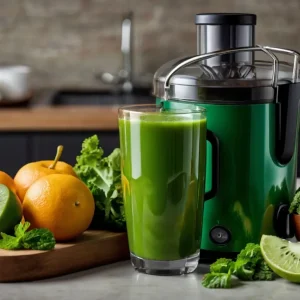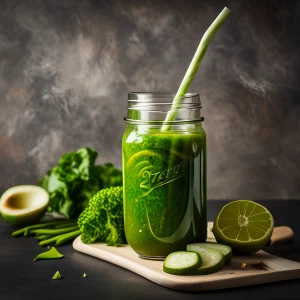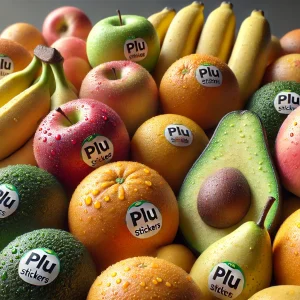Table of Contents
Key Points:
-
Gut Health and Probiotics
Probiotics are beneficial microorganisms that can help balance gut microbiota and improve digestive health.
-
Benefit More Than Just Your Gut
Probiotics offer various health benefits, including enhanced immunity and better nutrient absorption.
-
Easy to Add to Your Diet
Probiotics can be consumed through fermented foods or supplements, and work best when combined with a healthy diet.
Did you know your gut holds trillions of microbes that quietly shape your health? This hidden ecosystem in your digestive tract affects everything from how you digest food to how your immune system works.
Adding beneficial bacteria called probiotics to your diet can help balance your gut microbiota. This might improve digestion,boost immune function, and even influence your mood.
Researchers have found that certain probiotic strains offer real health benefitswhen you eat them regularly. These helpful microbes compete with harmful bacteria, produce good-for-you compounds, and strengthen your gut barrier.
Doctors often suggest probiotics as part of a bigger strategy toimprove gut health, especially if you struggle with digestive issues.
Understanding Gut Health
Your gut’s health sits at the core of your general well-being. It touches everything from digestion to how your immune system responds.
The ecosystem inside your digestive tract isn’t simple—it’s a web of interactions that helps keep you healthy and can even help prevent disease.
What Is Gut Health
Gut health means your digestive tract works in harmony. A healthy gutbreaks down food, absorbs nutrients, and gets rid of waste, all while keeping a strong intestinal barrier.
This barrier matters a lot. It keeps out harmful substances but lets nutrients pass through. Tight junctions in the gut wall decide what gets in and what stays out.
Your small intestine does most of the heavy lifting for nutrient absorption. That includes proteins, carbs, fats, vitamins, and minerals—pretty much everything your body needs.
Signs your gut’s in good shape? Regular bowel movements, little to no digestive discomfort, and efficientnutrient absorption. If you’re always dealing with bloating, gas, or irregularity, your gut might be flagging a problem.
Role of the Gut Microbiome
The gut microbiome is a teeming world of trillions of microorganisms living in your digestive tract. You’ll find bacteria, viruses, fungi, and more—each with a job to do and allinfluencing metabolic healthin their own way.
These microbes help out with some big tasks:
- Breaking down tough carbohydrates
- Producing key vitamins like K and B
- Training and regulating your immune system
- Protecting you from harmful pathogens
- Influencing your brain through the gut-brain axis
Good bacteria, as people often call them, keep the peace in your gut. They fight for resources, crowd out the bad guys, and make compounds that stop pathogens from taking over.
Researchers keep finding new links between your gut microbiota and all sorts of health issues—things like inflammatory bowel disease, obesity, diabetes, and even mental health problems.
Factors Influencing Gut Function
What you eat shapes your gut more than almost anything else. Fiber-rich foods feed the good bacteria, while processed foods heavy in sugar can let the bad ones thrive.
Some key dietary factors:
- Fiber from fruits, veggies, and whole grains
- Fermented foods with live microorganisms like yogurt, kimchi, and sauerkraut
- Polyphenols in olive oil, berries, dark chocolate, and green tea
- Avoiding processed foods and artificial sweeteners (usually not great for your gut)
Lifestyle matters, too. Chronic stress can mess with the gut-brain axis, while regular exercise tends to boost microbial diversity and gut movement.
Medications, especially antibiotics, can wipe out good and bad bacteria alike. That disruption can leave you with digestive problems and open the door for harmful microbes.
Things like pollution, food additives, and even your living environmentmight play a role in gut health.
Introduction to Probiotics
Probiotics are friendly microorganisms that can give your gut a real boost when you get enough of them. These live cultureswork by making your intestinal environment healthier and supporting digestion in a bunch of ways.
Definition of Probiotics
Probiotics are live microorganisms that provide health benefits when you take them in sufficient amounts. People call them “good bacteria” because they help keep your digestive system in balance.
You’ll mostly see these types:
- Lactobacillusspecies
- Bifidobacteriumspecies
- Some yeasts,like Saccharomyces boulardii
Look for “live and active cultures” on food labels if you want probiotics. You’ll find these bacteria naturally in fermented foods like yogurt, kefir, sauerkraut, and kimchi.
To actually count as a probiotic, a microbe needs to survive your digestive system, reach your intestines alive, and show real health benefits in research.
How Probiotics Work in the Gut
Probiotics help your gut in several ways. Once they get into your digestive tract, they help maintain the delicate balance of your gut microbiota.
Lactic acid bacteria and other probiotic strains do things like:
- Strengthen your intestinal barrier
- Compete with harmful bacteria for nutrients and attachment spots
- Produce substances that stop pathogens from growing
- Support your immune system
Your gut is home to trillions of microbes that influence digestion, immunity, and overall health. Probiotics help by boosting the population of good bacteria and enhancing gut health.
Since different strains offer different benefits, you’ll often see supplements with several types of live bacteria for a broader effect.
Health Benefits of Probiotics
When you make probiotics a regular part of your routine, you can see a surprising range of health perks. These tiny helpers support everything from digestion to immunity and even offer a few unexpected bonuses.
Digestive Health Improvements
Probiotics are key players in keeping your digestion on track. They help restore balance to your gut microbiota, which is crucial for breaking down food and absorbing nutrients. If your gut is out of balance, you’ll probably notice digestive troubles.
Some probiotic strains can help with common digestive complaints:
- Constipation: Certain probiotics can make bowel movements more regular and improve stool consistency.
- Diarrhea: They may shorten how long it lasts, especially if antibiotics are involved.
- Bloating: Regular use can reduce gas and abdominal discomfort.
People withinflammatory bowel conditions like ulcerative colitis, Crohn’s, or pouchitis often find probiotics helpful. They tend to suppress harmful bacteria and reduce inflammation in the gut.
If you’re lactose intolerant, some probiotics can make dairy easier to handle by improving lactose metabolism.
Immunity and Immune Function
About 70% of your immune system lives in your gut. That’s no small thing. Probiotics can make a real differencefor your immune defenses.
They strengthen your gut barrier, keeping out unwanted invaders—a process sometimes called “leaky gut prevention.”
Probiotics can influence your immune system by:
- Boosting natural antibody production
- Helping immune cells like NK cells and macrophages work better
- Lowering inflammation throughout the body
If you take probiotics regularly, you might notice you get fewer colds or infections. Some strains can also dial down allergy symptoms by helping your immune system react more appropriately.
Kids and older adults, in particular, often notice the biggest immune boost from probiotics since their immune systems are still developing or not as strong as they used to be.
Other Health Attributes and Benefits
Probiotics aren’t just about digestion and immunity.They can help in other areas, too.
Oral Health: Some probiotic strains help fight tooth decay, reduce gum inflammation, and cut down on bad breath by crowding out harmful mouth bacteria.
Heart Health: Regularly eating probiotics may support your heart by:
- Lowering LDL (“bad”) cholesterol
- Reducing blood pressure a bit
- Decreasing inflammation markers linked to heart disease
Mental Health: Thanks to the gut-brain connection, probiotics might even influence your mood and brain function. Some studies suggest they can help with anxiety, depression, or stress.
Probiotics also offer nutritional value by making vitamins B and K and helping you absorb minerals. Early research hints they might help with weight management or skin problems like eczema and acne, though more studies would be nice.
Probiotic-Rich Foods
Adding probiotic-rich foods to your meals can give your gut a real lift. These foods supply beneficial bacteria that help balance your microbiota and support overall health.
Dairy Foods and Fermented Milk
Yogurt stands out as one of the most popular probiotic-rich foods. It’s made by fermenting milk with helpful bacteria like Lactobacillus and Bifidobacterium.
Yogurt can support digestion and help your immune system. Always check for “live and active cultures” on the label if you’re after probiotics.
Soft cheeses like Gouda, mozzarella, and cottage cheese carry different levels of probiotics. The way these cheeses ferment creates bacteria that can survive your digestive system.
Kefir, a tangy fermented milk drink, usually packs even more probiotic strains than yogurt. It’s sort of like drinkable yogurt but with a bigger variety of bacteria and even some yeast tossed in.
That makes kefir pretty potent if you’re aiming to boost your gut health. People who can’t handle regular milk often do better with fermented dairy since much of the lactose breaks down during fermentation.
Vegetable-Based Fermented Foods
Kimchi, a classic Korean dish made from fermented cabbage and veggies, brings Lactobacillus bacteria to the table. Its spicy, tangy flavor keeps it popular, and it’s great for gut health.
Sauerkraut, made from fermented cabbage, gives you a good dose of probiotics, plus fiber and vitamins. Go for unpasteurized, refrigerated options—pasteurization wipes out the good bacteria.
Other notable probiotic vegetables include:
- Pickles (naturally fermented in salt water, not vinegar)
- Miso (fermented soybean paste)
- Tempeh (fermented soybean cake)
These foods bring both beneficial bacteria and fiber, which acts as food for your existing gut microbes.
Fermented Beverages
Kombucha has gotten trendy as a probiotic-rich beveragemade from fermented tea. It’s slightly fizzy, with bacteria and yeast forming during fermentation.
Some folks drink it regularly for digestion or immune support, though the taste isn’t for everyone. Traditional buttermilk—not the cultured kind in most stores—contains probiotics from its fermentation process and is still common in some cultures for digestive reasons.
Water kefir is a dairy-free choice, made by fermenting sugar water with kefir grains. It ends up as a fizzy, probiotic drink that’s easy on the gut.
Probiotic Supplements and Forms
Probiotic supplements come in all sorts of forms meant to get beneficial bacteria into your gut. Their effectiveness depends on things like the form, quality, and how well the product matches your needs.
Forms of Probiotic Supplements
Supplements show up in different forms, each with its perks. Capsules are the most common, giving you a precise dose and shielding bacteria as they travel through your digestive tract.
Many capsules use special coatings to protect bacteria from stomach acid. Powders let you mix probiotics into food or drinks, making them handy for those who can’t swallow pills or for kids.
Liquid probiotics skip the need for digestion and might work a bit faster. You’ll usually need to keep these in the fridge to keep them potent.
Other forms include:
- Chewable tablets
- Gummies (fun, but often lighter on bacteria)
- Lozenges (for oral microbiome support)
- Suppositories (for targeted delivery)
Factors Influencing Supplement Quality
The CFU count(Colony Forming Units) tells you how many live bacteria are in each dose. This usually ranges from 1 billion up to 100 billion.
More isn’t always better—the right strains and your personal needs matter more.Survivability really matters here.
Good supplements use acid-resistant strains or tech like microencapsulation solive bacteriamake it to your intestines. Storage plays a big role, too.
Some need refrigeration, while shelf-stable ones use hardier strains or special preservatives. Manufacturing standards can be all over the place, so look for products from certified facilities and those that get third-party testing.
Selecting High-Quality Probiotic Products
When you’re picking a probiotic, think about the specific health goals you have. Different strains do different things—some help immunity, some are better for digestion, others might affect mood.
Premium options, like Seed DS-01 Daily Synbiotic, use fancy delivery systems for better bacterial survival. They tend to cost more, but you might notice stronger effects compared to basic grocery store brands.
Read those labels for:
- Exact strain details (genus, species, strain)
- Expiration dates
- Potency guaranteed through the “best by” date
- Clear manufacturing info
Plenty of studiesget specific about which strains work for which conditions. Match those up with your needs if you can.
Just keep in mind,dietary supplements don’t get regulated like medicines. Stick with brands that have solid quality control and back up their products with real research.
Safety and Side Effects of Probiotics
Most people tolerate probiotics just fine, but some experience temporary side effects. Certain groups should be extra cautious before starting supplements.
Common Side Effects
Most side effects are mild and clear up within a few days as your body gets used to the new bacteria. Digestive issues are the most common, like:
- Digestive discomfort: Temporary bloating, gas, or stomach gurgling
- Changes in bowel movements: Brief constipation or diarrhea
- Mild abdominal pain: Usually fades as your gut flora settles down
These symptoms usually mean your gut bacteria are shifting. Most people find these effects go away after a week or two.
Some folks mention more thirst or a dry mouth when starting probiotics. Rarely, people get headaches or find they crave certain foods more as their microbiome changes.
Precautions and Considerations
Some people should check with their doctor before taking probiotics. Folks with weakened immune systems have a higher risk of complications, including rare systemic infections.
Who should be cautious:
- People with serious health conditions
- Anyone recovering from surgery
- Those with severe gut disorders
- Anyone on immunosuppressive drugs
There’s a rare but odd effect called post-prandial brain fogginesslinked to probiotic use—basically, some folks feel confused after eating and get abdominal discomfort.
Quality really matters with supplements. Pick brands that clearly list strains and CFUs, and stick with reputable manufacturers.
Frequently Asked Questions
People have all sorts of questions about probiotics and gut health. Here are some answers about benefits, effectiveness, food sources, side effects, and how to use probiotics properly.
What are the benefits of taking probiotics for the digestive system?
Probiotics help keep your gut microbiome balanced, which is key for good digestion. They can ease some symptoms of irritable bowel syndrome (IBS), like bloating, gas, and stomach pain.
Research shows probiotics can help prevent or treat diarrhea, especially after taking antibiotics. Studies indicate they support your gut’s natural barrier, stopping harmful bacteria from sneaking into the bloodstream.
Certain probiotic strains break down tough-to-digest food, making meals feel less uncomfortable.
What are the top probiotic-rich foods to include in your diet?
Yogurt with live active cultures is a classic for probiotics. Check labels for strains like Lactobacillus or Bifidobacterium—they’re the good stuff.
Fermented veggies like kimchi, sauerkraut, and pickles have a mix of probiotic strains. You also get prebiotic fiber, which feeds your gut bacteria.
Kefir, kombucha, and tempeh are other probiotic sources you can add to snacks or meals.
Miso soup, if you stir in the paste at the end, keeps its beneficial bacteria alive.
Can probiotics cause adverse effects, and how can one mitigate them?
Sometimes, people get mild digestive issues when they start taking probiotics. You might notice a bit of bloating, some gas, or changes in your usual bathroom routine at first. It helps to begin with a low dose and slowly increase it.
If your immune system isn’t strong, talk to your doctor before starting probiotics. There’s a tiny risk of infection, but it’s rare.
Stick with high-quality brands from companies you trust to avoid contaminated or useless products.











